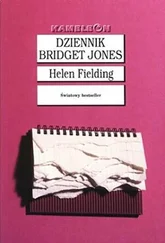Henry Fielding - History of Tom Jones, a Foundling
Здесь есть возможность читать онлайн «Henry Fielding - History of Tom Jones, a Foundling» — ознакомительный отрывок электронной книги совершенно бесплатно, а после прочтения отрывка купить полную версию. В некоторых случаях можно слушать аудио, скачать через торрент в формате fb2 и присутствует краткое содержание. Жанр: foreign_prose, foreign_antique, на английском языке. Описание произведения, (предисловие) а так же отзывы посетителей доступны на портале библиотеки ЛибКат.
- Название:History of Tom Jones, a Foundling
- Автор:
- Жанр:
- Год:неизвестен
- ISBN:нет данных
- Рейтинг книги:4 / 5. Голосов: 1
-
Избранное:Добавить в избранное
- Отзывы:
-
Ваша оценка:
- 80
- 1
- 2
- 3
- 4
- 5
History of Tom Jones, a Foundling: краткое содержание, описание и аннотация
Предлагаем к чтению аннотацию, описание, краткое содержание или предисловие (зависит от того, что написал сам автор книги «History of Tom Jones, a Foundling»). Если вы не нашли необходимую информацию о книге — напишите в комментариях, мы постараемся отыскать её.
History of Tom Jones, a Foundling — читать онлайн ознакомительный отрывок
Ниже представлен текст книги, разбитый по страницам. Система сохранения места последней прочитанной страницы, позволяет с удобством читать онлайн бесплатно книгу «History of Tom Jones, a Foundling», без необходимости каждый раз заново искать на чём Вы остановились. Поставьте закладку, и сможете в любой момент перейти на страницу, на которой закончили чтение.
Интервал:
Закладка:
One day this young couple accidentally met in the garden, at the end of the two walks which were both bounded by that canal in which Jones had formerly risqued drowning to retrieve the little bird that Sophia had there lost.
This place had been of late much frequented by Sophia. Here she used to ruminate, with a mixture of pain and pleasure, on an incident which, however trifling in itself, had possibly sown the first seeds of that affection which was now arrived to such maturity in her heart.
Here then this young couple met. They were almost close together before either of them knew anything of the other’s approach. A bystander would have discovered sufficient marks of confusion in the countenance of each; but they felt too much themselves to make any observation. As soon as Jones had a little recovered his first surprize, he accosted the young lady with some of the ordinary forms of salutation, which she in the same manner returned; and their conversation began, as usual, on the delicious beauty of the morning. Hence they past to the beauty of the place, on which Jones launched forth very high encomiums. When they came to the tree whence he had formerly tumbled into the canal, Sophia could not help reminding him of that accident, and said, “I fancy, Mr Jones, you have some little shuddering when you see that water.” – “I assure you, madam,” answered Jones, “the concern you felt at the loss of your little bird will always appear to me the highest circumstance in that adventure. Poor little Tommy! there is the branch he stood upon. How could the little wretch have the folly to fly away from that state of happiness in which I had the honour to place him? His fate was a just punishment for his ingratitude.” – “Upon my word, Mr Jones,” said she, “your gallantry very narrowly escaped as severe a fate. Sure the remembrance must affect you.” – “Indeed, madam,” answered he, “if I have any reason to reflect with sorrow on it, it is, perhaps, that the water had not been a little deeper, by which I might have escaped many bitter heart-aches that Fortune seems to have in store for me.” – “Fie, Mr Jones!” replied Sophia; “I am sure you cannot be in earnest now. This affected contempt of life is only an excess of your complacence to me. You would endeavour to lessen the obligation of having twice ventured it for my sake. Beware the third time.” She spoke these last words with a smile, and a softness inexpressible. Jones answered with a sigh, “He feared it was already too late for caution:” and then looking tenderly and stedfastly on her, he cried, “Oh, Miss Western! can you desire me to live? Can you wish me so ill?” Sophia, looking down on the ground, answered with some hesitation, “Indeed, Mr Jones, I do not wish you ill.” – “Oh, I know too well that heavenly temper,” cries Jones, “that divine goodness, which is beyond every other charm.” – “Nay, now,” answered she, “I understand you not. I can stay no longer.” – “I – I would not be understood!” cries he; “nay, I can’t be understood. I know not what I say. Meeting you here so unexpectedly, I have been unguarded: for Heaven’s sake pardon me, if I have said anything to offend you. I did not mean it. Indeed, I would rather have died – nay, the very thought would kill me.” – “You surprize me,” answered she. “How can you possibly think you have offended me?” – “Fear, madam,” says he, “easily runs into madness; and there is no degree of fear like that which I feel of offending you. How can I speak then? Nay, don’t look angrily at me: one frown will destroy me. I mean nothing. Blame my eyes, or blame those beauties. What am I saying? Pardon me if I have said too much. My heart overflowed. I have struggled with my love to the utmost, and have endeavoured to conceal a fever which preys on my vitals, and will, I hope, soon make it impossible for me ever to offend you more.”
Mr Jones now fell a trembling as if he had been shaken with the fit of an ague. Sophia, who was in a situation not very different from his, answered in these words: “Mr Jones, I will not affect to misunderstand you; indeed, I understand you too well; but, for Heaven’s sake, if you have any affection for me, let me make the best of my way into the house. I wish I may be able to support myself thither.”
Jones, who was hardly able to support himself, offered her his arm, which she condescended to accept, but begged he would not mention a word more to her of this nature at present. He promised he would not; insisting only on her forgiveness of what love, without the leave of his will, had forced from him: this, she told him, he knew how to obtain by his future behaviour; and thus this young pair tottered and trembled along, the lover not once daring to squeeze the hand of his mistress, though it was locked in his.
Sophia immediately retired to her chamber, where Mrs Honour and the hartshorn were summoned to her assistance. As to poor Jones, the only relief to his distempered mind was an unwelcome piece of news, which, as it opens a scene of different nature from those in which the reader hath lately been conversant, will be communicated to him in the next chapter.
Chapter vii. – In which Mr Allworthy appears on a sick-bed
Mr Western was become so fond of Jones that he was unwilling to part with him, though his arm had been long since cured; and Jones, either from the love of sport, or from some other reason, was easily persuaded to continue at his house, which he did sometimes for a fortnight together without paying a single visit at Mr Allworthy’s; nay, without ever hearing from thence.
Mr Allworthy had been for some days indisposed with a cold, which had been attended with a little fever. This he had, however, neglected; as it was usual with him to do all manner of disorders which did not confine him to his bed, or prevent his several faculties from performing their ordinary functions; – a conduct which we would by no means be thought to approve or recommend to imitation; for surely the gentlemen of the Aesculapian art are in the right in advising, that the moment the disease has entered at one door, the physician should be introduced at the other: what else is meant by that old adage, Venienti occurrite morbo? “Oppose a distemper at its first approach.” Thus the doctor and the disease meet in fair and equal conflict; whereas, by giving time to the latter, we often suffer him to fortify and entrench himself, like a French army; so that the learned gentleman finds it very difficult, and sometimes impossible, to come at the enemy. Nay, sometimes by gaining time the disease applies to the French military politics, and corrupts nature over to his side, and then all the powers of physic must arrive too late. Agreeable to these observations was, I remember, the complaint of the great Doctor Misaubin, who used very pathetically to lament the late applications which were made to his skill, saying, “Bygar, me believe my pation take me for de undertaker, for dey never send for me till de physicion have kill dem.”
Mr Allworthy’s distemper, by means of this neglect, gained such ground, that, when the increase of his fever obliged him to send for assistance, the doctor at his first arrival shook his head, wished he had been sent for sooner, and intimated that he thought him in very imminent danger. Mr Allworthy, who had settled all his affairs in this world, and was as well prepared as it is possible for human nature to be for the other, received this information with the utmost calmness and unconcern. He could, indeed, whenever he laid himself down to rest, say with Cato in the tragical poem —
Let guilt or fear
Disturb man’s rest: Cato knows neither of them;
Indifferent in his choice to sleep or die.
Интервал:
Закладка:
Похожие книги на «History of Tom Jones, a Foundling»
Представляем Вашему вниманию похожие книги на «History of Tom Jones, a Foundling» списком для выбора. Мы отобрали схожую по названию и смыслу литературу в надежде предоставить читателям больше вариантов отыскать новые, интересные, ещё непрочитанные произведения.
Обсуждение, отзывы о книге «History of Tom Jones, a Foundling» и просто собственные мнения читателей. Оставьте ваши комментарии, напишите, что Вы думаете о произведении, его смысле или главных героях. Укажите что конкретно понравилось, а что нет, и почему Вы так считаете.












